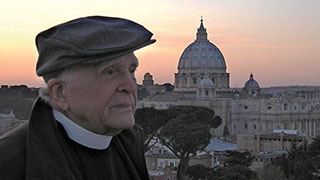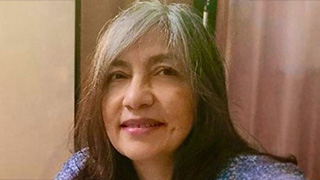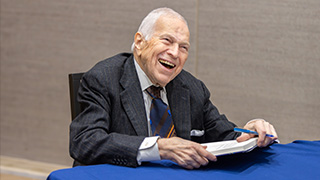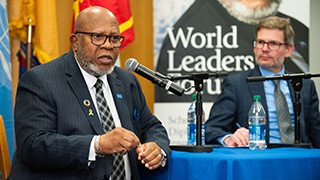Professor Publishes New Book on St. Mother Teresa
Friday, July 17, 2020
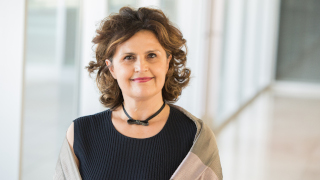
Dr. Murzaku's book is published by a major Catholic Publishing House - Paulist Press, directed by the Paulist Fathers. This is how Dr. Murzaku, explains the inspiration behind the book and what unites Pope Francis and St. Mother Teresa:
"Close parallels can be drawn between Pope Francis' and Mother Teresa's theology of periphery. Both Francis and Teresa centered in the periphery and both served the Church from and in the geographic peripheries of Argentina and India. However, there is a ‘peripheral distinction' between the two: Mother Teresa's geography of serving the Church went from the Balkan periphery--Scopje--to the Indian periphery, or a full-circle periphery. On the other hand, Francis moved from the Argentinian periphery to Rome--the center. Nevertheless, both Mother Teresa and Pope Francis equally brought the periphery to the center of world's attention. They complemented each other.
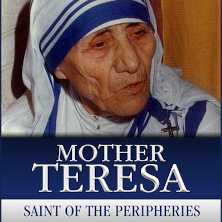
Bergoglio might have been intimidated by the tough, tiny, and straightforward woman coming from the peripheries and making a case for the new-found periphery of India in the Bishops' Synod without blinking an eye, but the two are closely aligned in the way they centered their apostolates and worldviews in peripheries. He would have never fathomed that he, the pope of the peripheries, would canonize the mother of the peripheries after 22 years, on September 4, 2016.
Like Francis, Mother Teresa comes from the geographical and existential periphery. She was born and raised in Scopje, in today's Republic of North Macedonia. Mother Teresa grew up in a multi-ethnic, multi-religious society where the Catholic community was a peripheral minority. Like Francis, Mother Teresa knew first-hand the existential peripheries of poverty, misery, war, displacement and ethnic cleansing. It was the ‘periphery of periphery' in the Balkans that taught and prepared Mother Teresa for her mission in India. It is this story of Mother Teresa that I analyze in detail in this book."
About Catholic Studies:
The Catholic Studies Program at Seton Hall University offers an innovative, interdisciplinary curriculum for students of any creed who are interested in deepening their knowledge of Catholicism's rich intellectual tradition and living heritage. Combining the study of history, philosophy, theology, literature, art, sociology, and other disciplines, Catholic Studies focuses on the church's dialogue with culture and encounter with the world. Students interested in Catholic Studies have the option to pursue a major, minor, or certificate that complements and enhances the university's other degree programs and fields of study.
Categories: Education


